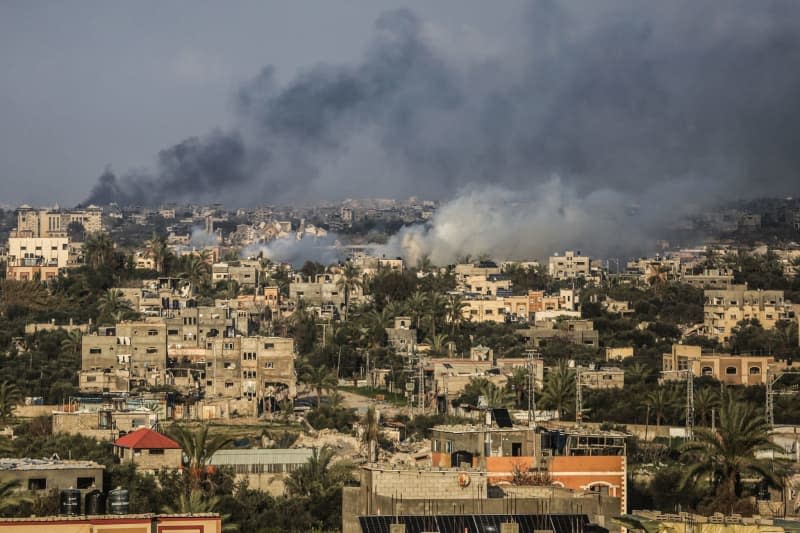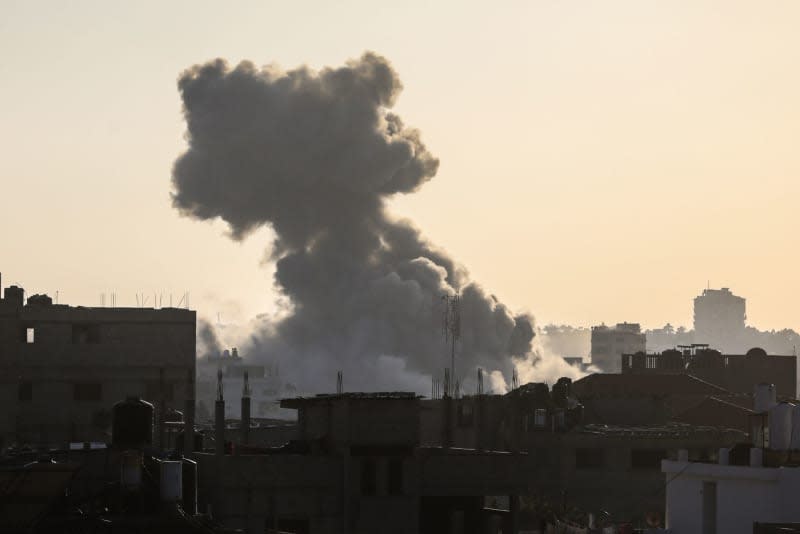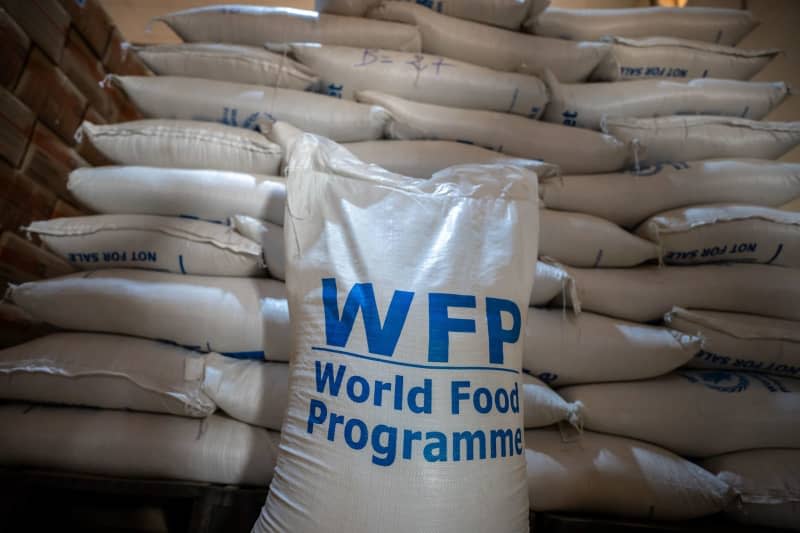Israel tells more Gazans to flee as Hamas leader holds talks in Cairo

Israel ordered new evacuations from two Palestinian neighbourhoods in Gaza City on Tuesday, indicating impending military operations there and dashing hopes that Hamas talks in Cairo could prompt a ceasefire.
The call was issued for the neighbourhoods of Zeitoun and Turkman, located in the north of the Gaza Strip, where the World Food Programme has also temporarily suspended the delivery of food aid due to bread riots.
The residents were told to move to a designated area further south along the Mediterranean coast.
The Israeli army radio station reported that Israeli troops had already advanced into the Zeitoun neighbourhood during the night.
The operation is focusing on "Hamas terror infrastructure that has not yet been destroyed by the army," it said, adding that the operation there could last several weeks.
The UN says up to 1.7 million of the more than 2.2 million residents of the Gaza Strip have had to leave their homes since the war began following the October 7 attacks on Israel carried out by Palestinian extremist organization Hamas and other militant groups from Gaza.
Around 1.5 million Gazans are crowded into Rafah, the southernmost city that sits on the border with Egypt.
Residents of the Gaza Strip are periodically told by Israel to flee ahead of military offensives. However, the corridors and areas designated by Israel as safe have often come under fire.
The Israeli air and ground offensive has rendered parts of the north uninhabitable. Some residents have returned to their homes, although the Israeli army has tried to prevent this.
The Israeli army also said on Tuesday that dozens of fighters from Hamas had been killed during intensive operations in the city of Khan Younis in the south of the coastal enclave.
The World Health Organization (WHO) meanwhile brought 18 seriously ill patients out of the embattled Nasser Hospital in Khan Younis.
The risky operation, which was conducted on Monday, was announced by a spokesman for the UN health agency in Geneva. Israeli special forces entered the hospital late last week after the army said it had information that Hamas was using the facility as a base.
The war was triggered by the worst massacre in Israel's history, when Hamas and other militants murdered more than 1,200 people inside Israel and abducted 250 others to the coastal strip on October 7. Around 105 hostages were released as part of a prisoner exchange in November.
The Hamas-run health authority in Gaza says 29,195 people have been killed and 69,170 others injured in Israel's response, with the Jewish state aiming to destroy Hamas and free the around 100 remaining hostages.
The family of the youngest Israeli hostages still thought to be in the Gaza Strip called for a swift agreement with Hamas on their release.
On Monday, the Israeli army released a previously unknown video showing a mother with her two sons - a baby and a 4-year-old - in the hands of their captors shortly after their abduction on October 7.
Last year, Hamas announced that the mother and the two children had been killed in Israeli airstrikes. However, a similar announcement about another hostage turned out to be false.
"When we saw the video, it was as if our hearts were being ripped out," their children's aunt told reporters. There was "no other way than a negotiated solution" to release the hostages, she said.
"They are the only children left among the hostages. We call on all decision-makers: Bring this family home."
A negotiated solution to end the whole war is the reason Hamas leader Ismail Haniyeh arrived in Cairo on Tuesday for talks with officials.
Haniyeh led a delegation to regional power-broker Egypt to discuss "the efforts made to stop the aggression, provide relief for citizens and achieve the goals of our Palestinian people," a Hamas Telegram channel said.
Sources at Cairo airport confirmed his arrival from Qatar for a multi-day visit, along with six Hamas officials.
A high-level Israeli delegation also arrived in Cairo for an hours-long visit to discuss Gaza, airport sources said.
Last week, intelligence chiefs from the United States, Israel, Qatar and Egypt also held talks in Cairo in a bid to achieve a ceasefire.
The WFP says time is of the essence to avoid a humanitarian catastrophe in Gaza. The UN body said it had been forced to temporarily suspended the delivery of food aid to the north.
It announced in a statement that deliveries would only be started up again once the conditions for safer distribution were in place.
After a three-week break, the WFP resumed deliveries to the north on Sunday. Since then, however, there have been chaotic scenes and riots during the distribution of food, the WFP said.
People have climbed onto lorries and in some places entire food trucks were looted. There were also occasional clashes, with shots fired and a lorry driver attacked.



